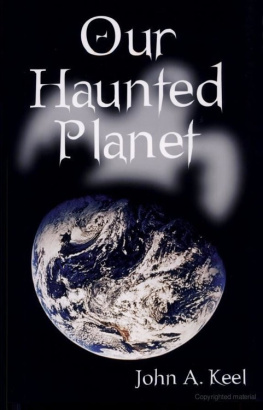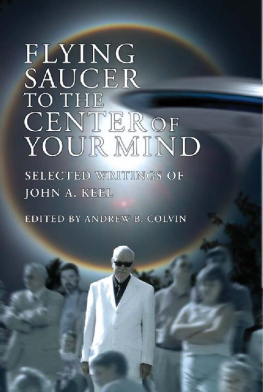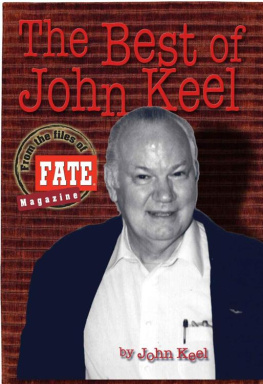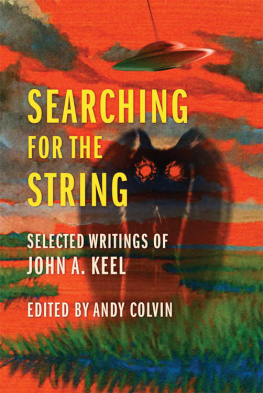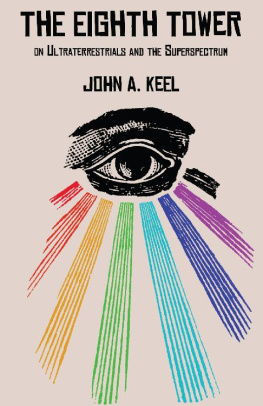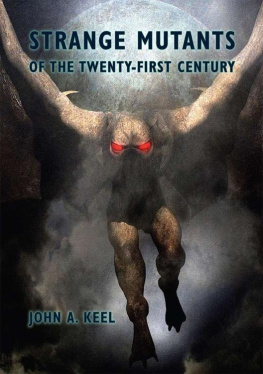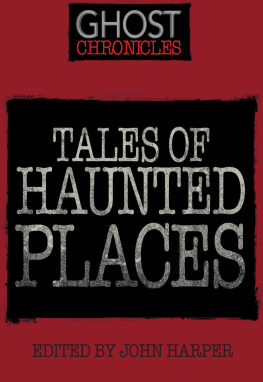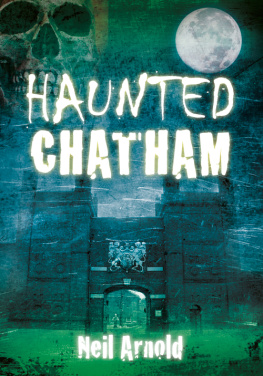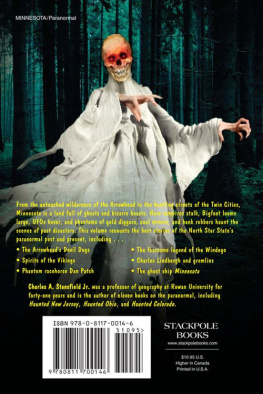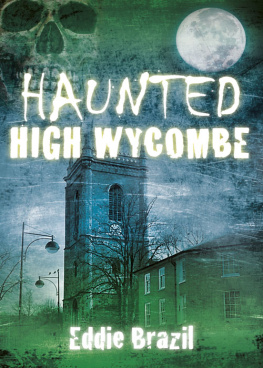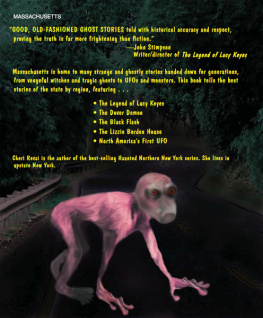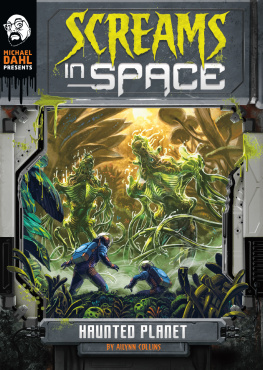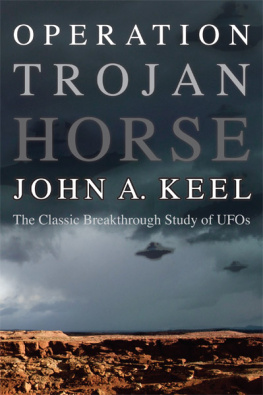Our
Haunted
Planet
Our
Haunted
Planet
John A. Keel
New Saucerian Books, Point Pleasant, West Virginia
OUR HAUNTED PLANET
Portions of chapters 14 and 15 appeared originally in Saga magazine, copyright 1968 and 1970 by Gambi Publications, Inc.; and in Male magazine, copyright 1970 by Magazine Management, Inc. Chapter 16 is excerpted from lectures delivered by the author before the Humanist Society, July 22, 1970, and the American Society of Dowsers, October 2, 1970.
Copyright 1971 by Fawcett Publications, Inc.
All rights reserved, including the right to reproduce this book or portions thereof.
Copyright 2014 New Saucerian Books, Point Pleasant, West Virginia
Thank you, Mr. Apol, wherever you are
Contents
INTRODUCTION
IN September 1953, I spent eight hours inside the Great Pyramid in Egypt producing a radio program which was aired throughout Europe over the American Forces Network (AFN) the following month. Egypt so impressed me, and archaeology so fascinated me that I returned to Cairo the next year and lived there for several months, wading through the musty libraries and museums, prowling the desert, and visiting the ancient tombs. During a trek to Aswan and the Upper Nile I saw my first flying saucer, a metallic looking disk, with a rotating outer rim, which hovered for several minutes above the Aswan Dam in broad daylight. I had written and produced a radio documentary, Things in the Sky, in 1952, and my earlier researches into unidentified flying objects had already convinced me that such things not only existed, but that they had been present in our skies since the dawn of man.
Eventually my travels took me to Beirut, Damascus, Baghdad and a thousand places in between. I walked among the ancient ruins and puzzled over man's illustrious but forgotten past. In India I wandered alone into the Himalayas and crossed the border of Tibet (which has since been sealed by the Chinese). As I traveled, I interviewed archaeologists, historians, and assorted experts and spent endless hours in remote libraries poring over rare old books. I was puzzled at first to discover that none of the leading authorities seemed to agree on anything. Indeed, a large part of the scientific literature is devoted to theorization and incredibly vicious attacks on the theories of other theorists. Most perplexing of all was the fact that some of the literature about the ruins I had visited smacked of pure fiction, because the authors had not visited the sites but labored instead to couple fictitious theories with dubious facts. This led, of course, to conclusions that bordered on the imbecilic.
An offshoot of this process is, understandably enough, an enormous quantity of crank literature created by unqualified researchers who attempted to interpret the scientific material in their own ways. In many areas of the less popular sciences the crank material outweighs the scientific because few if any scientists have tackled those subjects. So 98 percent of all the available literature on Atlantis, flying saucers, Tibet, and prehistoric ruins falls into the crank category. The task of sorting all this out and developing a valid synthesis is a formidable oneone which I have undertaken with great trepidation.
In his book, In the Name of Science, Martin Gardner defines the characteristics of the common crank or pseudoscientist. He lists the four chief attributes as being: (1) The crank considers himself a genius... even a towering genius who is years ahead of his time. (2) He considers his colleagues and fellow researchers "ignorant blockheads," largely because they fail to recognize his genius. He assaults his opponents by impugnation, questioning their honesty, intelligence, and motives. They respond in kind, naturally, and so great storms are whipped up in the trivial teacups of the scientific and pseudoscientific journals. Controversy is the lifeblood of crankism. (3) The pseudo-scientist is paranoid and feels he is the victim of a vast conspiracy designed to suppress his brilliant work. In many instances these imagined conspiracies become a vital part of the subject itself, as for example, the endless literature discussing how the U.S. Air Force has been keeping the truth about flying saucers from the public. (4) The crank delights in focusing his attacks "on the greatest scientists and the best-established theories." He goes after big game. He is wiser than Einstein, knows more about astronomy than Fred Hoyle, and is better informed about the moon than Neil Armstrong.
The crank also invents his own terminology: a jabberwocky understood only by him and his closest allies. So, we find the literature filled with confusing and complicated terms which are merely displays of pseudoerudition, or what psychiatrists call neologisms.
Over the years I have met the leaders of many peculiar cults and pseudoscientific factions of belief. With very few exceptions, they have all lived up to the above criteria. Most were friendly and cooperative with me until they realized that I did not share their beliefs in Atlantis or visitors from Andromeda. Then they turned on me with wrathful vengeance and launched such campaigns of unfounded slander that I could only be amazed and amused. I have now been accused of being everything from a Communist con man to a secret agent for the Central Intelligence Agency; from a religious fanatic (I'm a lifelong agnostic) to a pawn of the devil. Typographical errors, over which I have no control, in my many articles and books have been lovingly dissected by these groups and prompted countless letters and essays reviewing their sinister implications. After twenty-five years as a writer and reporter dedicated to collecting the facts as objectively and as honestly as possible, my integrity has been attacked from all angles.
For these reasons this book is written in a style which discusses known facts with the popular and unpopular beliefs they have inspired. I am not supporting any of these beliefs. I am merely discussing them. It may be that the great civilizations of Atlantis and Lemuria once actually flourished on this planet. In this book I am only weighing the evidence pro and con. It may be that little green men from Mars really are visiting housewives in Nebraska. I am only reporting the claims of the housewives, not trying to prove that Martians are really dropping in. The believers in Atlantis will undoubtedly hate me. The believers in Martians already despise me.
Parts of this book are so obviously tongue-in-cheek that it shouldn't be necessary to mention it. Yet I know from bitter experience that some of my humorous comments will be taken seriously and will prompt new venom. I am not attacking any specific individuals or cults. I am attacking man's abysmal ignorance and his impassioned effort to hide that ignorance from himself. I have seen a large part of this world and its mysteries. Wonder and curiosity have always been an integral part of my life. I am only trying to share that wonder with the reader.
This book is based upon countless interviews, endless correspondence, many in-depth personal investigations, and hundreds of books covering everything from alchemy to zoology. Wherever possible, I have tried to include key source references for the benefit of those readers who might be interested in pursuing some of these matters further. It has been impossible, however, to list all my sources. Some of the books used in my research were privately published and are quite rare. But even some of these can be obtained through Gray Barker, Box 2228, Clarksburg, West Virginia 26301; and Health Research, 70 Lafayette Street, Mokelumne Hill, California 95245.
Although unidentified flying objects are mentioned frequently in these pages, the UFO controversy is not the main theme. Some of the major UFO cases discussed are drawn from reports which appeared originally in England's
Next page
